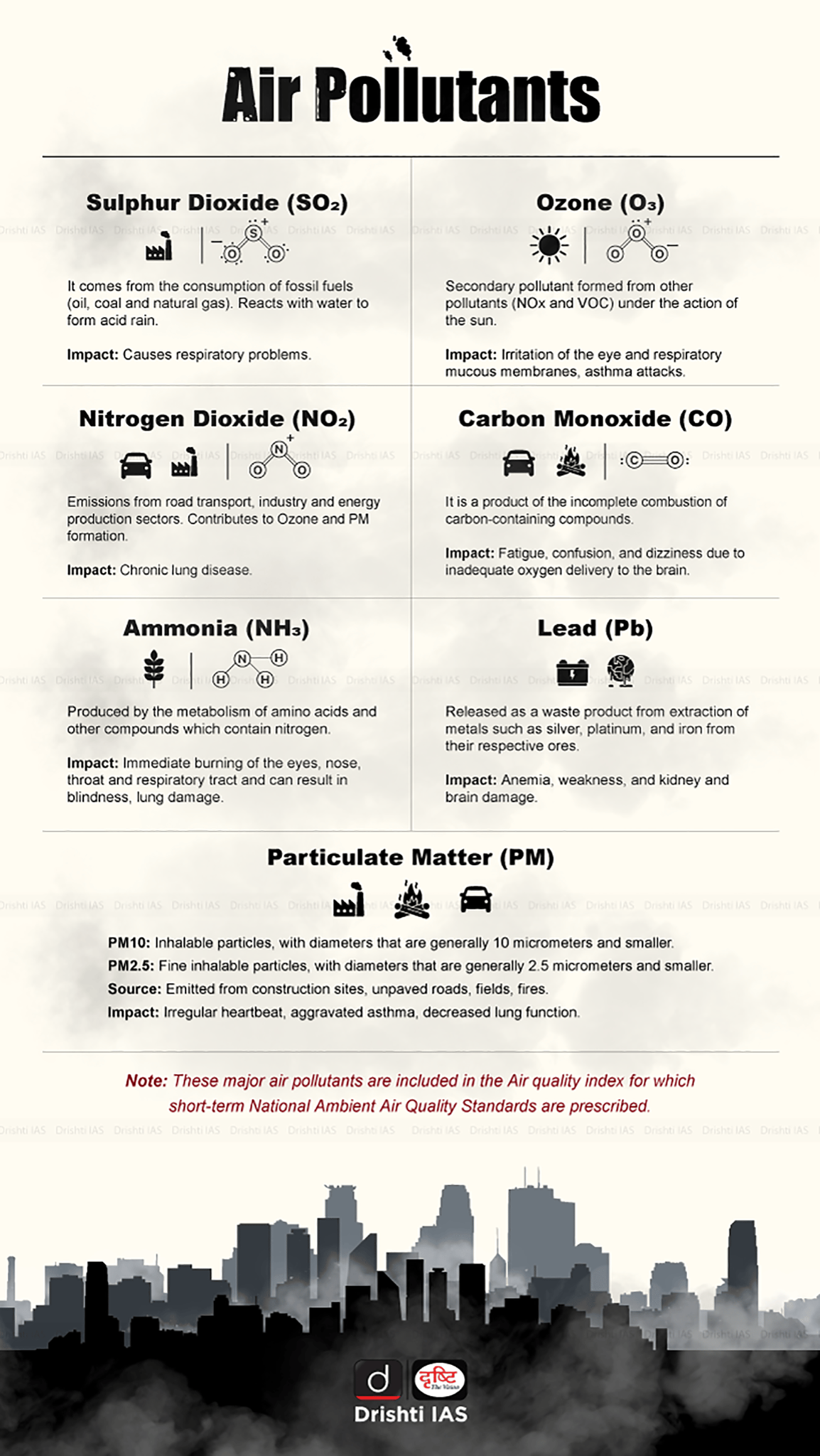Swachh Vayu Survekshan Award 2024 | 09 Sep 2024
Why in News?
Recently, the Union Minister of Environment, Forest & Climate Change, and Chief Minister of Rajasthan presented the Swachh Vayu Survekshan Award 2024, on the occasion of the International Day of Clean Air for Blue Skies (Swachh Vayu Diwas) at Jaipur.
Note:
- Every year, the International Day of Clean Air for Blue Skies is celebrated on 7th September to raise awareness and facilitate actions to improve air quality.
- It was declared so by the United Nations General Assembly (UNGA) in 2019.
What is the Swachh Vayu Survekshan Award 2024?
- About Award:
- The Swachh Vayu Survekshan Award, 2024, was presented to the best performing National Clean Air Campaign (NCAP) cities in three categories based on population. The winning cities are
- Category-1 (population over 10 Lakhs): Surat, Jabalpur, and Agra.
- Category-2 (population between 3-10 Lakhs): Firozabad, Amravati, and Jhansi.
- Category-3(population under 3 Lakhs): Raebareli, Nalgonda, and Nalagarh.
- The Municipal Commissioners of the winning cities were awarded with cash prizes, trophies, and certificates.
- The Swachh Vayu Survekshan Award, 2024, was presented to the best performing National Clean Air Campaign (NCAP) cities in three categories based on population. The winning cities are
- Swachh Vayu Survekshan (SVS):
- About:
- SVS is a new initiative by the Ministry of Environment, Forest and Climate Change (MoEFCC) to rank cities on the basis of air quality and implementation of activities approved under the city action plan (NCAP) in 131 non-attainment cities.
- Cities are declared non-attainment if over a 5-year period they consistently do not meet the National Ambient Air Quality Standards (NAAQS) for PM10 or NO2.
- SVS is a new initiative by the Ministry of Environment, Forest and Climate Change (MoEFCC) to rank cities on the basis of air quality and implementation of activities approved under the city action plan (NCAP) in 131 non-attainment cities.
- The categorisation of cities has been based on the 2011 population census.
- About:
- Criteria: The cities were assessed on eight major points:
- Control of biomass
- Municipal solid waste burning
- Road dust
- Dust from construction and demolition waste
- Vehicular emissions
- Industrial emissions
- Public awareness
- improvement in PM10 concentration
National Clean Air Campaign (NCAP)
- About: The National Clean Air Programme (NCAP) aims to systematically address air pollution by engaging all stakeholders and ensuring necessary action.
- 131 cities have been identified for the implementation of the city specific action plans under NCAP.
- Target: It is the first-ever effort in the country to frame a national framework for air quality management with a time-bound reduction target.
- It seeks to cut the concentration of coarse (PM10) and fine particles (PM2.5) by at least 20% in the next five years (base year for comparison-2017).
- Monitoring: The “PRANA” portal has also been launched by MoEFCC for
- Monitoring implementation of NCAP.
- Monitoring the action plans and implementation status of cities.
- Sharing best practices adopted by cities for others to emulate
.
What are the Government Initiatives Regarding Clean Air?
- Vehicle Scrap Policy
- Waste to Wealth campaign
- "Ek Ped Maa Ke Naam" program
- the Mission LiFE
- Ideas4LiFE campaign
UPSC Civil Services Examination, Previous Year Question (PYQ)
Q. How is the National Green Tribunal (NGT) different from the Central Pollution Control Board (CPCB)? (2018)
1. The NGT has been established by an Act whereas the CPCB has been created by an executive order of the Government.
2. The NGT provides environmental justice and helps reduce the burden of litigation in the higher courts whereas the CPCB promotes cleanliness of streams and wells, and aims to improve the quality of air in the country.
Which of the statements given above is/are correct?
(a) 1 only
(b) 2 only
(c) Both 1 and 2
(d) Neither 1 nor 2
Ans: (b)

